It is very easy to confuse these two terms In this post, we will quickly clarify what each of them is, their differences, and their relationship Let's go! Odds vs Probability While odds and probability are related mathematical concepts, the two are also distinctly different The probability of something occurring represents the fraction of times you'd see it happen over several trials If you have a 50% probability of catching the bus, that number represents the idea that you will catch the bus half the time On the other hand, oddsFirst, there are 10*9/2=45 ways you can choose 2 players out of 10 The probability of two specific players getting four aces is 1/combin (52,4)=1/ So the probability of any two players getting a pair of aces is 45/= In a 10handed game of Texas Hold 'em, and the flop is three different ranks, what is the probability that
Http Jse Amstat Org Vn3 Fulton Pdf
Are odds and probability the same
Are odds and probability the same- Odds vs Odd Published 12 Aug, 19 Views 1,101 Odds noun The ratio of the probabilities of an event happening to that of it not happening 'I'd say the odds are strongly in favor of the sun rising tomorrow morning';"Odds" refers to the probability of occurrence of an event/probability of the event not occurring At first glance, though these two concepts seem similar and interchangeable, there are important differences that dictate where the use of either of these is appropriate Let us look at the hypothetical example of a randomized trial comparing endoscopic sclerotherapy (n = 65) versus




Odds Ratio Wikipedia
How to find probability and odds and the difference between the two We also discuss experimental probablility, theoretical probability, odds in favor, and Even though these terms are often used interchangeably, there is a marked difference between the two Keith McNulty notes in his article titled, "Are you mixing up odds with probability?" that both terms "imply an estimate of chance" Even though these terms are related concepts, they are notably different in "scale and meaning" Odds can be expressed as a ratio of the probability an event will happen divided by the probability an event won't happen Odds in favor of A = A / (1 A), usually simplified to lowest terms, For instance, if the probability of an event occurring is 075, then the odds for it happening are 075/025 = 3/1 = 3 to 1 for, while the probability that it doesn't occur is 1 to 3 against
Odds versus probability Chance defines the number of possible outcomes Odds defines the probablility of one outcome over another based on historical data The chance of a coin landing heads or tails is 50% because there are only two possible outcomes The odds of which way the coin lands can vary depending how many parameters you choose to figure into the equation Odds vs Probability In probability we start with an assumed parameter ($P(head)$) and estimate the probability of a given sample (two heads in a row) In statistics we start with the observation (two heads in a row) and make INFERENCE about our parameter ( $p = P(H) = 1 P(T) = 1 q$ )Consider p as probability Odds for=p1p and viceversa Odds against=(1p)p Probability, on the other hand, measures the totality of an event occurring in a total number of events;
What many people do not realize is that odds such as these are really just a restatement of the probability of an event Probability compares the number of successes to the total number of attempts made The odds in favor of an event compares the number of successes to the number of failuresOf probability, chances and odds are not the same For instance, the odds in favor of A are P(A) / P(Ac) = (3/4)/(1/4) = 3/1 It is said that the odds in favor of A are 31 or that A is an event twice as likely as "not A" Therefore, the odds of A occurring are expressed in the scale of the probability of "A not occurring" Understandably, confusion about the definitions of probability Odds should NOT be confused with Probabilities Odds are the ratio of something happening to something not happening In our scenario above, the odds are 4 to 6 Whereas, Probability is the ratio of something happening to everything that could happen So in the case of our chess example, probability is 4 to 10 (as there were 10 games played in total)



Definition And Calculation Of Odds Ratio Relative Risk Stomp On Step1




Probability Vs Odds What S The Difference Learn It And By Z Ai Towards Data Science
The higher the number, the greater the probability of the outcome Using an example of decimal odds, a candidate has 2 odds to win the next election If so, the implied probability isProbability vs Odds Any chance can be numerically described as either odds or probabilities In the majority of circumstances, neither is preferable to the other The majority of scientists generally refer to probabilities, not odds, but that is more a matter of tradition, there is no logical basis for it There's a simple difference between probabilities and odds the probability of an Without going into too much detail, probability is a number between 0 and 1 that tells you the fractional likelihood that something will happen So a probability of 0 means there's literally no chance of that thing happening, a probability of 05 means there's a 50% chance, and a probability of 1 means that it's certain to happen As you can see, the idea of probability is relatively simple But the idea of odds,




Odds Ratios Versus Relative Risk




Binary Logistic Regression With Odds Ratios Calculated For The Download Table
Converting Probability to Odds Take the probability, and divide it by its compliment = (1itself) eg If the probability is 4, or 40%, the odds are 4 ÷ (14) = 4 ÷6 = 67%, or 46 Taking a little Risks in Probability Risk Ratios When they say things like "smokers are X times more likely to get lung cancer than nonsmokers," they are utilising Risk Ratios Risk ratio is the American Odds in Spreads vs Moneylines When you're trying to bet on sports, you'll see American odds everywhere But there are two different ways they're used On their own, like for a moneyline (which just requires you to pick the winner of the game) With a point spread or other line, like an over/under The team you bet still needs to cover the spread, but the American oddsTherefore, the concern does not lie on if an occurrence will happen, but how often an event will occur For example, when calculating how often one may draw a heart out of a deck of cards, one takes into




How To Calculate Odds 11 Steps With Pictures Wikihow




Chapter 6 Choosing Effect Measures And Computing Estimates Of Effect Cochrane Training
Odds noun The ratio of winnings to stake in Odds, on the other hand, are the ratio of favorable outcomes to unfavorable outcomes The denominator contains ONLY the marbles that aren't the favorable outcomes Odds uses the contexts of good outcomes and bad outcomes Written as fractions, these two values are completely different Probability is 1/4 while odds in favor are 1/3 You can see how mistakenly"The Upshot puts the probability of a Republican takeover of the Senate at 74 percent;" or "The Upshot puts the odds of a



Ctspedia Ctspedia Oddsratiomeasures




Reduced Model Space Posterior Model Probabilities Above 0 03 Download Table
The Difference Between "Probability" and "Odds" If a race horse runs 100 races and wins 25 times and loses the other 75 times, the probability of winning is 25/100 = 0 If the horse runs 100 races and wins 5 and loses the other 95 times, the probability of winning is 005 or 5%, and the If theProbability vs Odds What's the difference?To calculate your poker equity or how often you should win a hand, you can use a simple formula
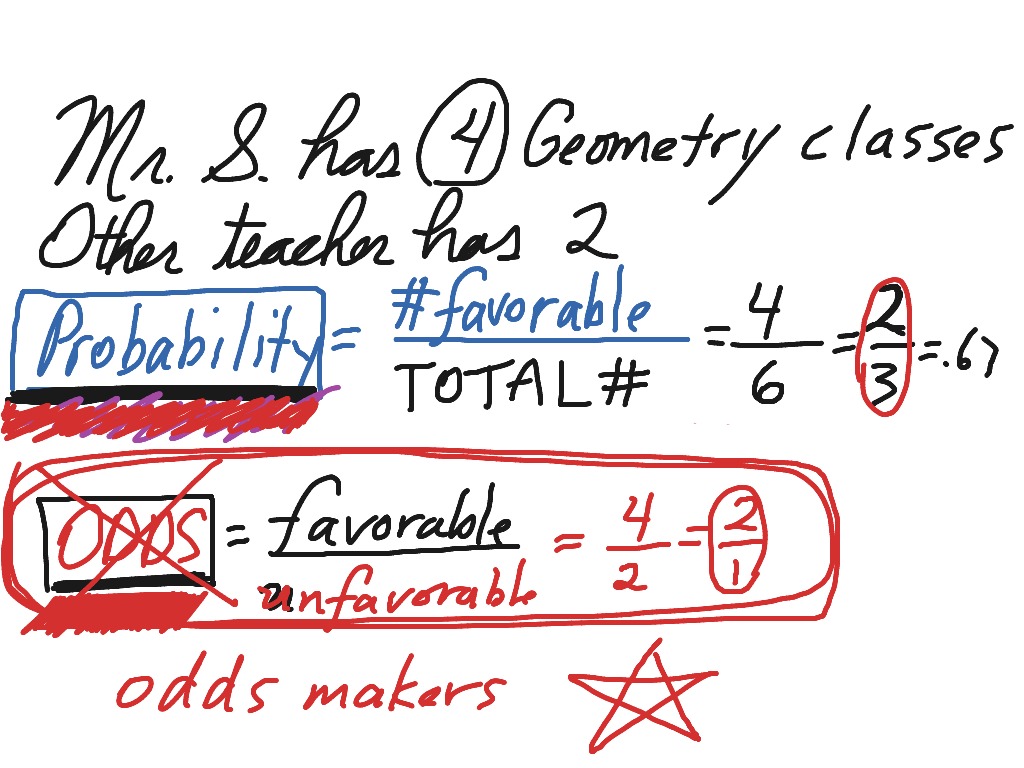



Showme Odds



Ctspedia Ctspedia Oddsterm
Odds vs Probabilities in Logit Equations / 1059 reason for this is that the tangent line at a given point is synonymous with the function itself Although this point has been made before by Petersen (1985), and although other statisticians have been careful to avoid an incorrect In short, poker odds is the probability of you winning that hand, or the price it offers (pot odds) How to learn poker odds? You can switch back and forth between probability and odds—both give you the same information, just on different scales If O1 is the odds of event in the Treatment group and O2 is the odds of event in the control group then the odds ratio is O1/O2 Just like the risk ratio, it's a way of measuring the effect of the tutoring program on the odds of an event Compare this to RR which




Odds Ratios And Risk Ratios Youtube




Pdf Odds Ratio Relative Risk
Probability theory is an interesting area of statistics concerned with the odds or chances of an event happening in a trial, eg getting a six when a dice is thrown or drawing an ace of hearts from a pack of cards To work out odds, we also need to have an understanding of permutations and combinations The math isn't terribly complicated, so read on and you might be Odds ratios work the same An odds ratio of 108 will give you an 8% increase in the odds at any value of X Likewise, the difference in the probability (or the odds) depends on the value of X So if you do decide to report the increase in probability at different values of X, you'll have to do it at low, medium, and high values of XOdds is a see also of probability As nouns the difference between odds and probability is that odds is the ratio of the probabilities of an event happening to that of it not happening while probability is the state of being probable;




Simple Probability Definition Probability The Chance Some Event




What Is The Difference Between Odds And Probability Statistics Youtube
Odds vs Probability Odds and probability are both terms used to describe the likeliness for something to happen Many of us mix them up, but in fact, they are quite different, which is why we have added this article to our online guide section Without any numbers, the words can mean the same If something has high odds of happening, then the probability for the same thing toAbout Press Copyright Contact us Creators Advertise Developers Terms Privacy Policy & Safety How works Test new features Press Copyright Contact us CreatorsLearn about the three popular formats that betting odds are expressed in fractional, decimal, and moneyline Find out how to interpret these types of odds




Odds Probability And The Lottery Lotterycodex
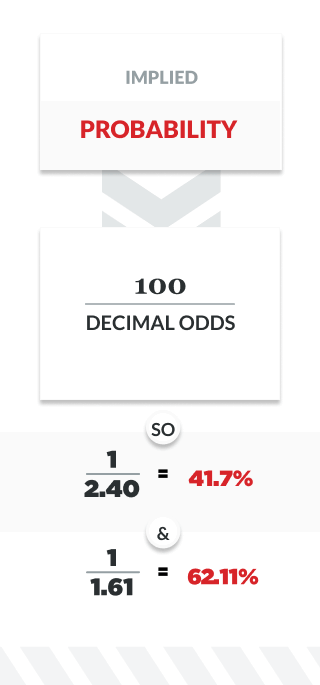



How To Read And Calculate Sports Odds Everything You Need To Know Betting 101
Many people think they know what a probability is, and also think they have a perfect understanding of what odds are they are used in betting all the time But do they really? Odds ratio vs probability ratio Ask Question Asked 1 year, 5 months ago Active 5 months ago Viewed 518 times 8 5 $\begingroup$ An odds is the ratio of the probability of an event to its complement $$\text{odds}(X) = \frac{P(X)}{1P(X)}$$ An odds ratio (OR) isOdds as a ratio, odds as a number, and probability (also a number) are related by simple formulas, and similarly odds in favor and odds against, and probability of success and probability of failure have simple relations Odds range from 0 to infinity, while probabilities range from 0 to 1, and hence are often represented as a percentage between 0% and 100% reversing the ratio switches odds




Math 30 2 Probability Odds Acceptable Standards 50 79 The Student Can Express Odds For Or Odds Against As A Probability Determine The Probability Ppt Download




Statistics 12 Probability Vs Odds Stats Seandolinar Com
You can learn poker odds by studying our poker odds chart and trying hand situations in our poker odds calculator How to calculate poker odds quickly? Difference Between Odds and Probability Odds vs Probability Probability is a mathematical assumption of chance that can be calculated using an equation The equation measures the chances for an event to occur against the total number of chances that occurrence may produce That is (Chances for)(Total Chances) Odds, on the other hand, are a measure ofPosttest probability = Posttest odds / (Posttest odds 1) Fagan nomogram The relation can also be estimated by a socalled Fagan nomogram (shown at right) by making a straight line from the point of the given pretest probability to the given likelihood ratio in their scales, which, in turn, estimates the posttest probability at the point where that straight line crosses its scale The



Http Jse Amstat Org Vn3 Fulton Pdf




Bayes Rule Odds Form Intro Math 1 Arbital
Probability or Odds Probability Probability means the risk of an event happening divided by the total number of people at risk of having that event I will use the example in a recent JAMA article In a deck of 52 cards, there are 13 spades So, the risk (or probability) of drawing a card randomly from the deck and getting spades is 13/52 = 025 = 25% The numerator is theIt is important to note, however, that odds to not directly represent probability of an event occurring, but rather the ratio of events to nonevents in total Odds vs Probability A good way to understand the difference between odds and probability is to imagine rolling a die and hoping to land on a two The odds of rolling the two are 1 to 5 One representing the chance of landing on(18) Human immunodeficiency virus infection was significantly higher for those women who acknowledge intravenous drug use (odds ratio 129, 95% confidence interval 73 to 227), were born in Haiti (odds ratio 26, 95% confidence interval 16 to 41), lacked prenatal care (odds ratio 22, 95% confidence interval 11 to 42), or received prenatal care at the hospital clinic versus a




Ppt Main Points To Be Covered Powerpoint Presentation Free Download Id
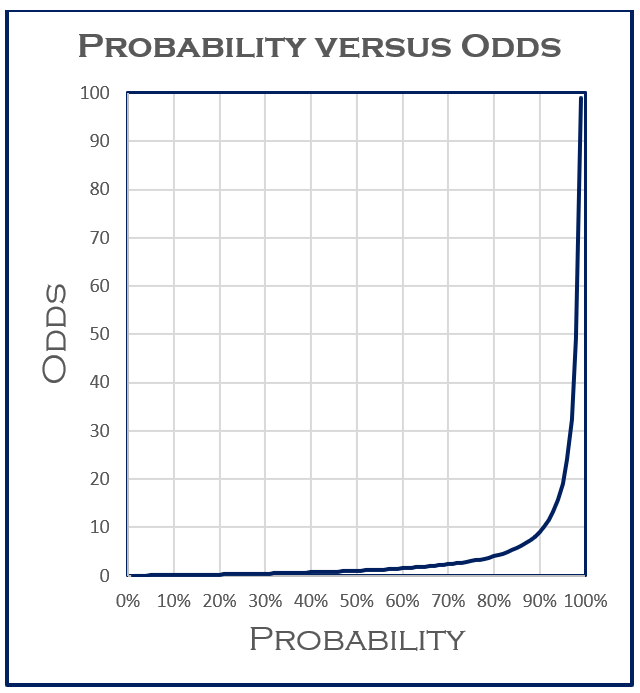



Probability Stats With Cats Blog
Difference Between Probability and Odds • Probability is expressed as a number between 0 and 1, while Odds is expressed as a ratio • Probability ensures that an event will occur, but Odds is used to find out whether the event will ever occurOdds vs Dealer Up Card The first odds chart shows what kind of advantage the player has vs the dealer based on what his up card is showing The first column in the chart is what card the dealer has showing after the cards have been dealt The second column of the table shows the dealer's probability of going bust based on each card The lastOdd adjective Differing from what is usual, ordinary or expected 'She slept in, which was very odd';
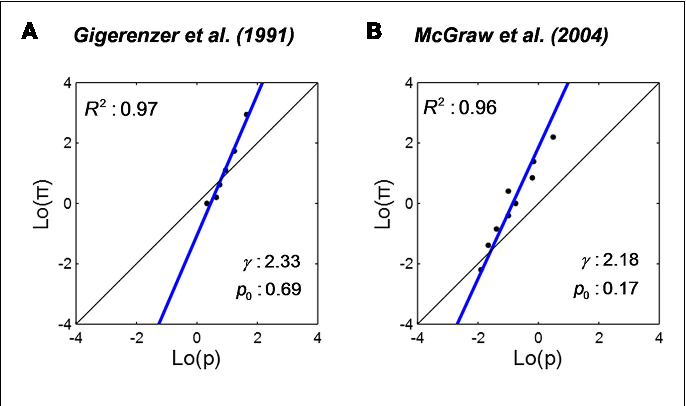



Figure 5 From Ubiquitous Log Odds A Common Representation Of Probability And Frequency Distortion In Perception Action And Cognition Semantic Scholar




Probability Vs Odds In Favour Or Against An Event Examples Youtube
Odds Is Related to Probability The formal way to describe the odds is as the probability of the event divided by the probability of the nonevent So odds are the ratio of two fractions the number of events divided by the number of subjects (the probability of the event) andLabs(title ="probability versus odds") 000 025 050 075 100 0 50 100 150 odds p probability versus odds Finally, this is the plot that I think you'llfind most4 Zeilen The primary difference between odds and probability is that while odds is a ratio of
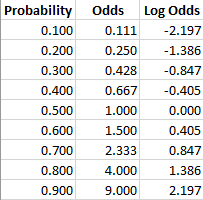



Log Odds Definition And Worked Statistics Problems




Odds Ratio The Odds Ratio Is Used To Find The By Analyttica Datalab Medium
Odds are just a way of stating a probability That's just a mathematical way of looking at how likely it is that something is going to happen All probabilities are ratios between eventsThe Ask Dr Math forum has several entries on odds versus probability Summarizing, one way to conceptualize (nontechnically) the probability of an event is the number of ways that an event Probability vs Odds Probability vs Odds Calculating One Given the Others Probability Review Probability = Success / Total Example If



Ctspedia Ctspedia Oddsterm




Comparing Probability Odds For And Odds Against Youtube
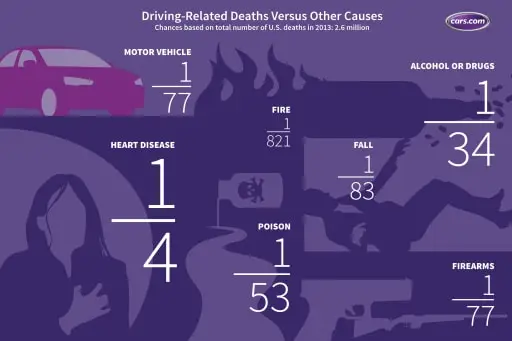



Are The Odds Ever In Your Favor Car Crashes Versus Other Fatalities News Cars Com




Binary Logistic Regression With Odds Ratios Calculated For The Download Table
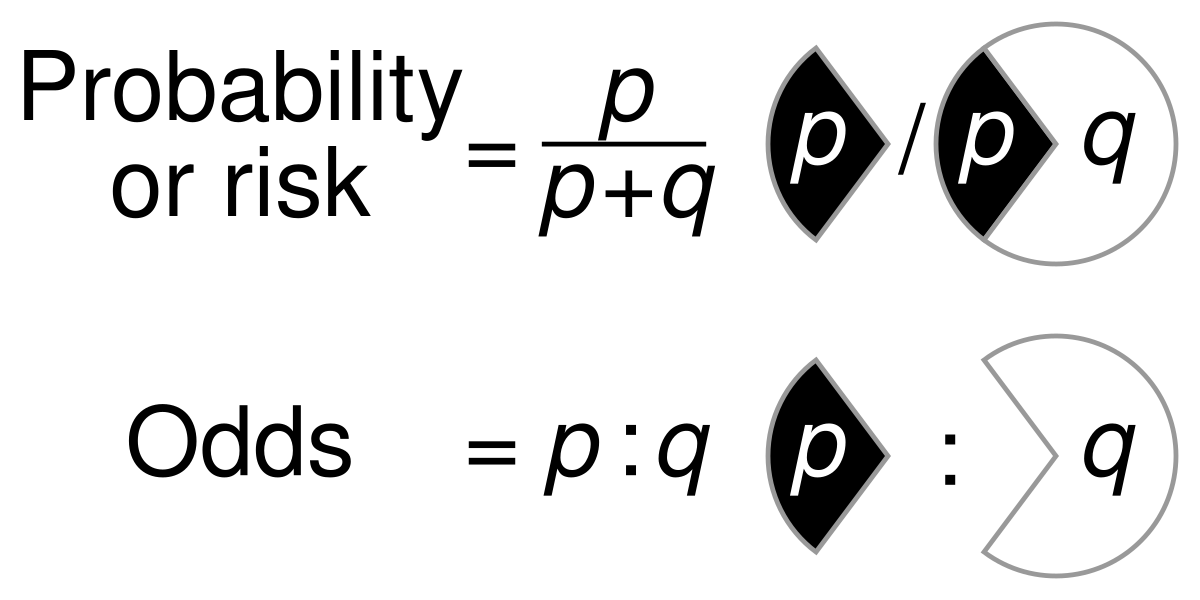



File Probability Vs Odds Svg Wikimedia Commons
:max_bytes(150000):strip_icc()/dotdash_Final_The_Math_Behind_Betting_Odds_and_Gambling_Nov_2020-01-735accb453c8424b9e063c2c14e4edf4.jpg)



The Math Behind Betting Odds Gambling




Odds Probability The Difference Explained With Examples




What Is An Odds Ratio And How Do I Interpret It Critical Appraisal




Estimates Of Odds Ratios Of Daily Probability Of Diarrhea In The Download Scientific Diagram
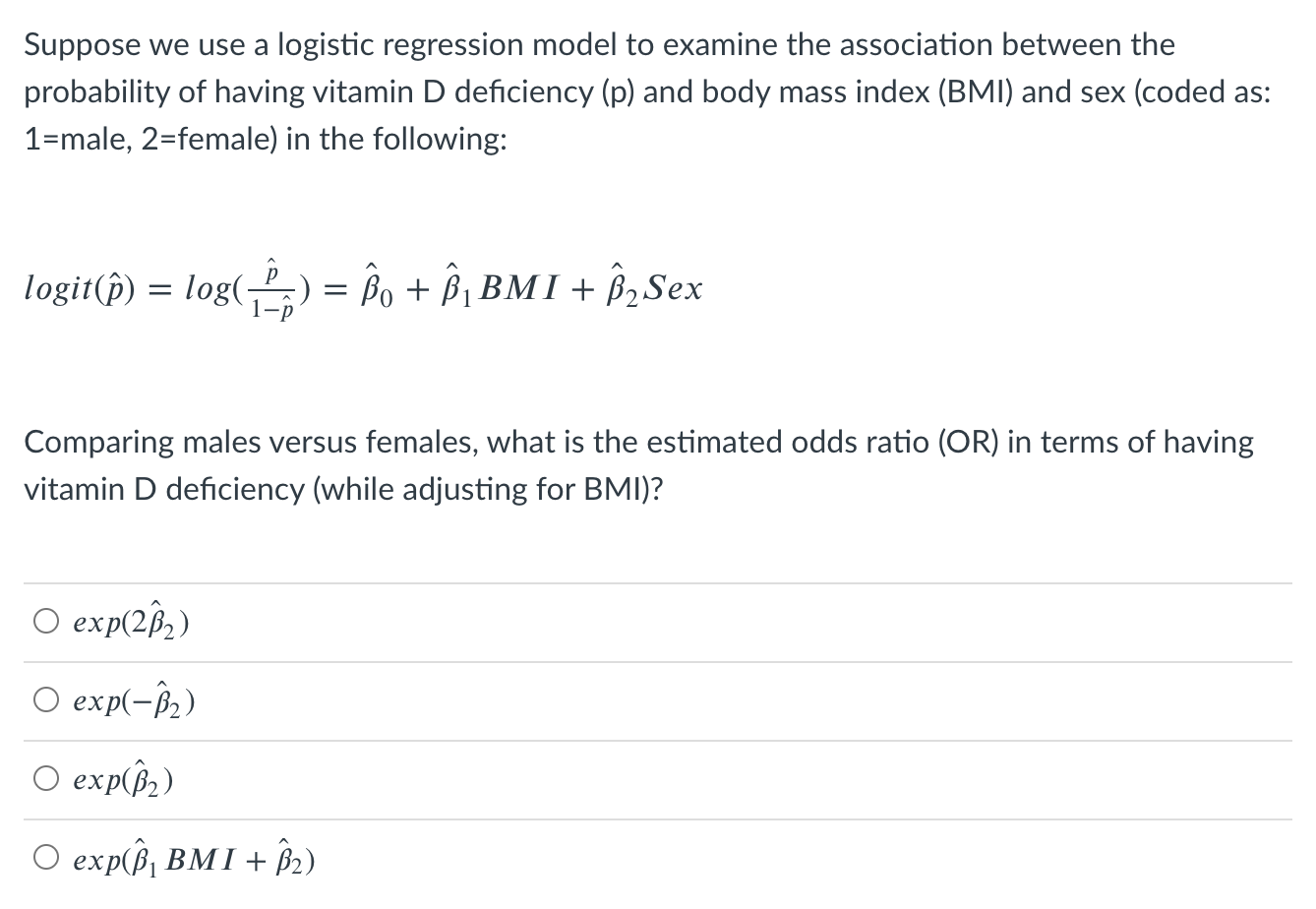



Suppose We Use A Logistic Regression Model To Examine Chegg Com




Epidemiological Measures Ppt Download




Probability And Odds Youtube




Odds Ratio Sage Research Methods




Betting Guide Odds Versus Probability Odds Margin Calculator
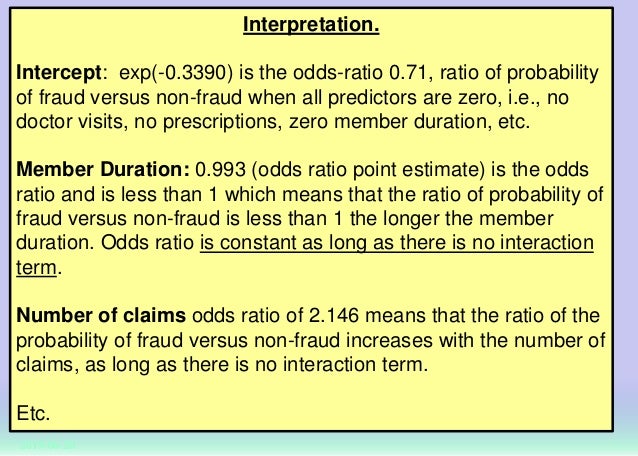



Classification Methods And Assessment




What And Why Of Log Odds What Are Log Odds And Why Are They By Piyush Agarwal Towards Data Science
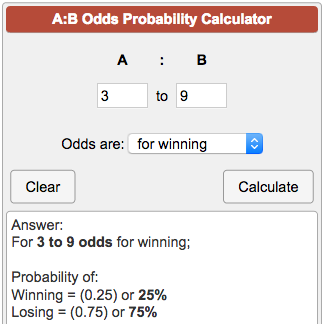



Odds Probability Calculator
:max_bytes(150000):strip_icc()/expected-5733972a5f9b58723d773687.png)



How Odds Are Related To Probability




Odds Ratio Relative Risk Calculation Definition Probability Odds Youtube




Probability Vs Odds In Favour Or Against An Event Examples Youtube




Converting Between Probability And Odds Mathwoes Youtube




Odds Introduction Arbital




Probability Odds Odds Ratio Youtube




Prove The Posterior Odds Updating Formula For Chegg Com




E Birbeck 7 04 Simple Probability Definition Probability The Chance Some Event Will Happen It Is The Ratio Of The Number Of Ways Ppt Download




Observed Versus Model Based Left Precipitation Probabilities Right Download Scientific Diagram
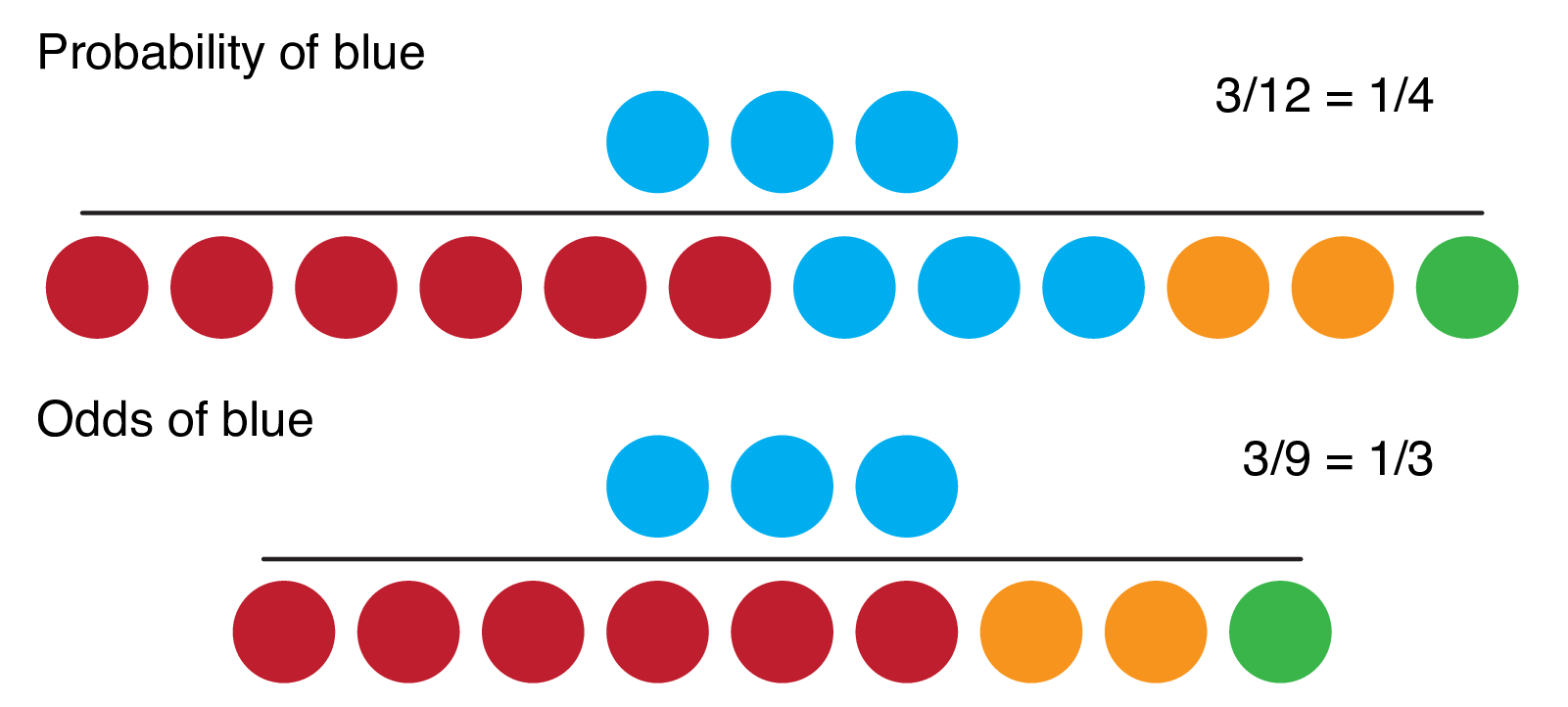



9 2 Binary Logistic Regression R For Health Data Science




10 1 10 2 Probability Permutations Warm Up Ppt Download




Implied Probability Betting Math Made Simple 21 Update




Odds Ratio Wikipedia




The Difference Between Probability And Odds




Definition And Calculation Of Odds Ratio Relative Risk Stomp On Step1




Calculating The Odds Of An Event Mathematics For The Liberal Arts




The Bounded Rationality Of Probability Distortion Pnas




Probability Vs Odds Youtube
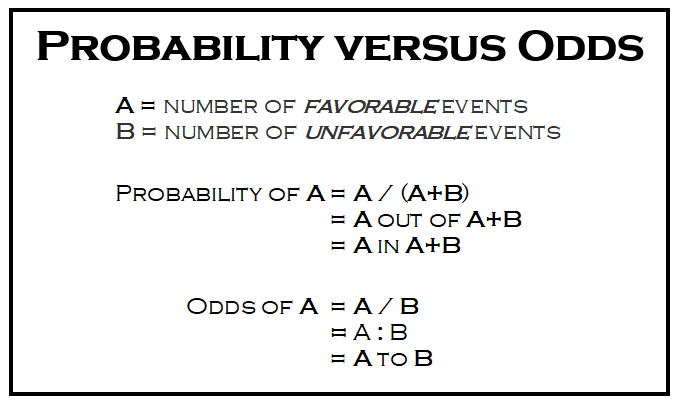



Probability Stats With Cats Blog




Probability Vs Odds What S The Difference Learn It And By Z Ai Towards Data Science
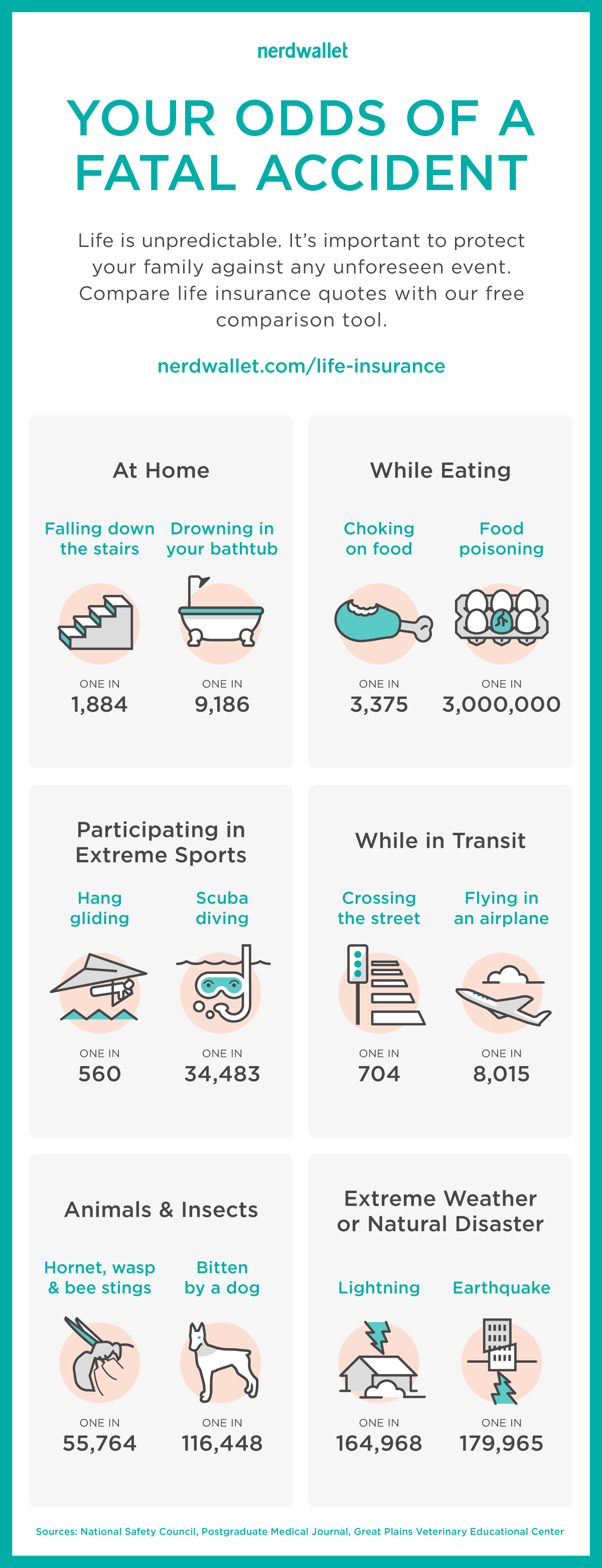



Life Insurance Is No Accident Odds Of Dying At Home More Nerdwallet
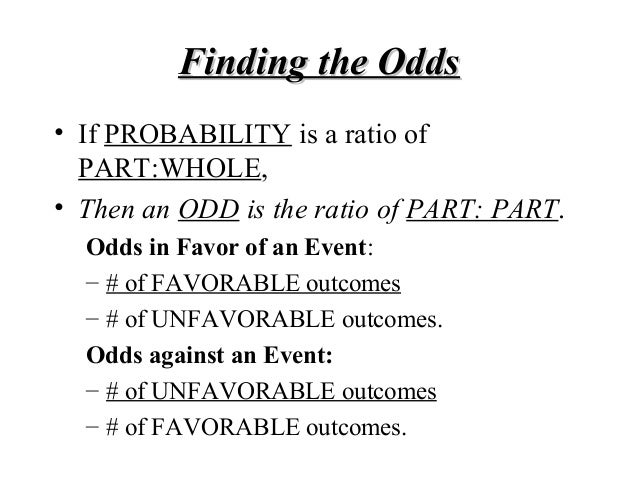



5 6 Probability And Odds Lesson
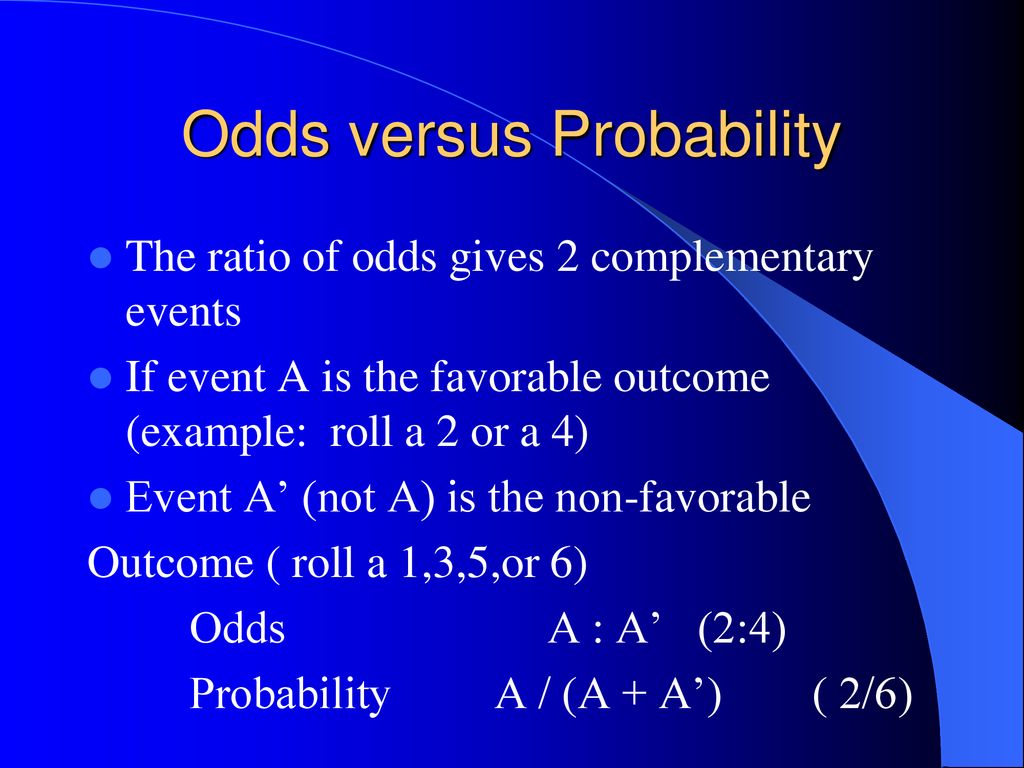



Odds Ppt Download




What Is The Difference Between The Risk Ratio Rr And The Odds Ratio Or Quora
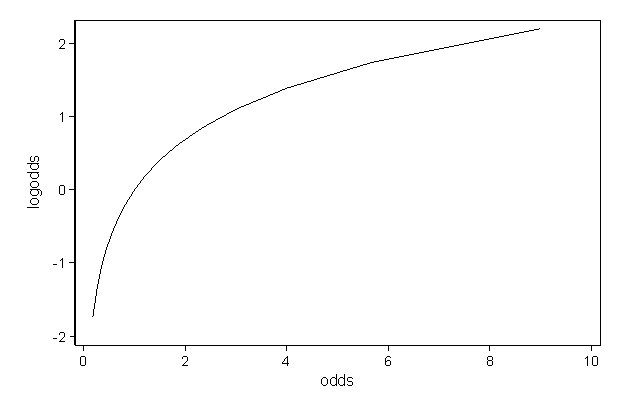



Faq How Do I Interpret Odds Ratios In Logistic Regression




How To Read Odds 13 Steps With Pictures Wikihow
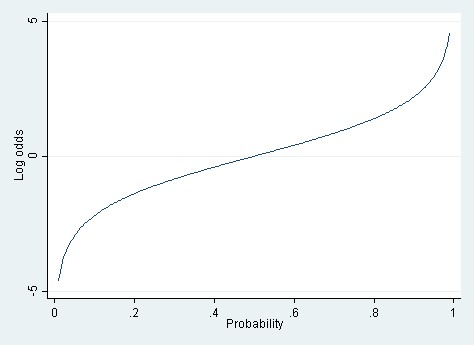



Linear Vs Logistic Probability Models Which Is Better And When Statistical Horizons




A Ratio Is A Fraction Odds Are A Type Of Ratio Fraction S Ratios 1 4 Odds 1 3 Ppt Download




Nhanes Tutorials Module 10 Logistic Regression




How To Calculate Odds 11 Steps With Pictures Wikihow
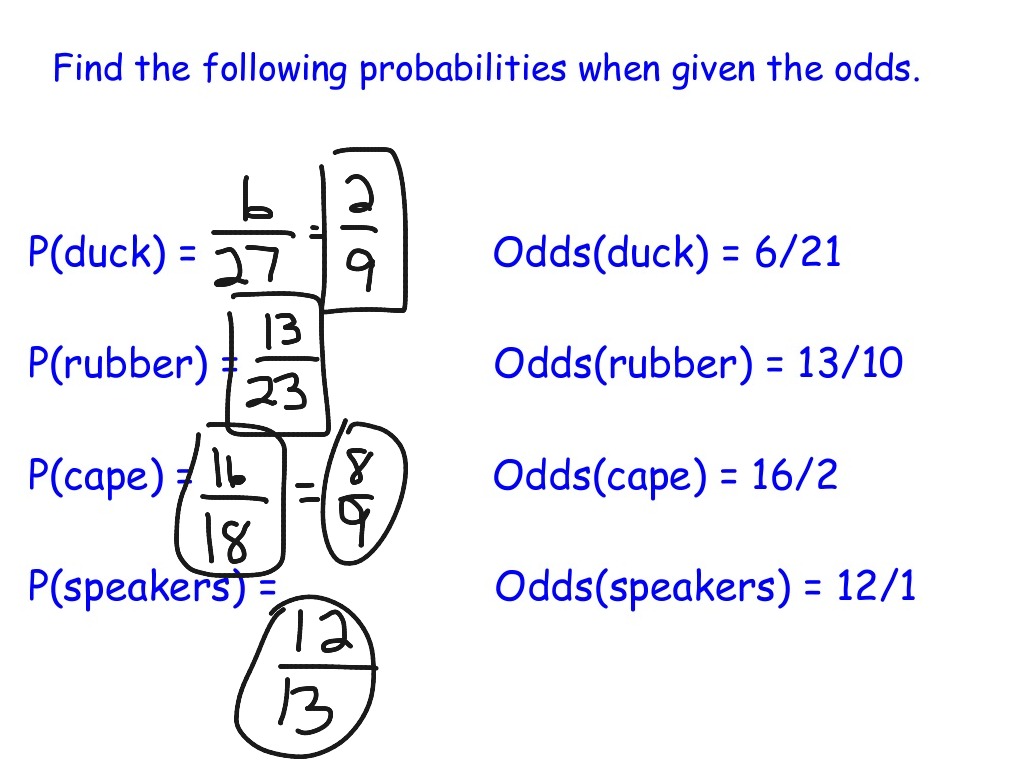



画像 Odds Vs Probability ただの悪魔の画像




What Are The Odds The Annals Of Thoracic Surgery




Probability Vs Odds What S The Difference Learn It And By Z Ai Towards Data Science
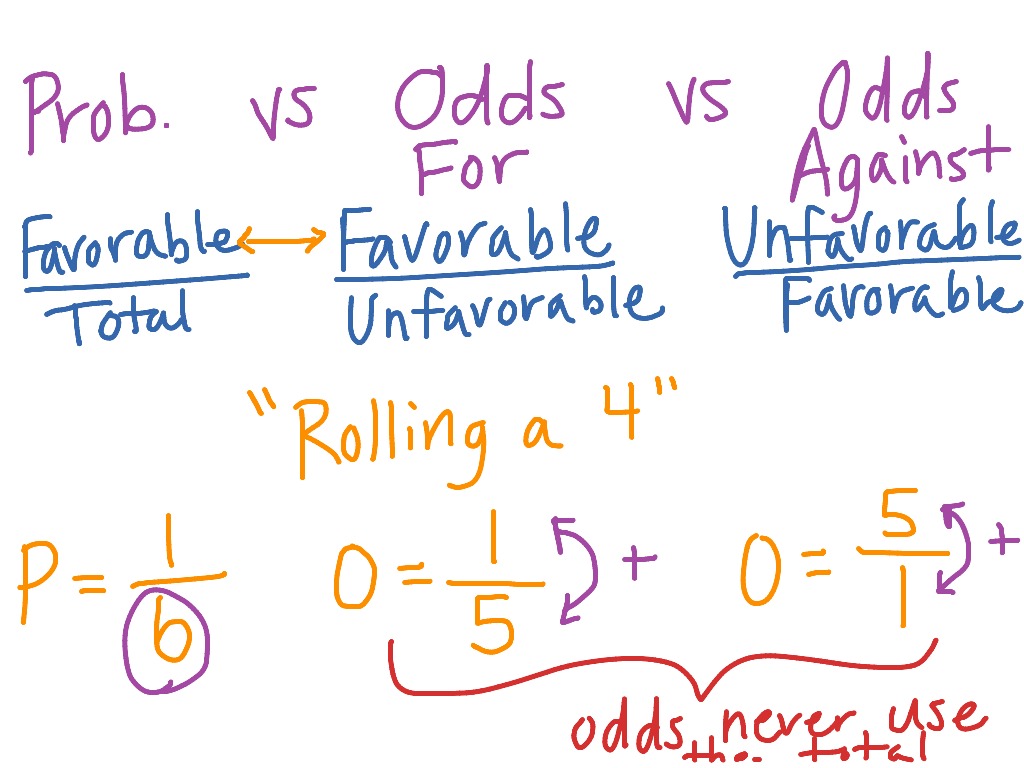



Odds Versus Probability Math Showme




What And Why Of Log Odds What Are Log Odds And Why Are They By Piyush Agarwal Towards Data Science



Odds Likelihood Ratios Guide To Diagnostic Tests




Odds Ratio Wikipedia




Lecture 38 Monday April 16 12
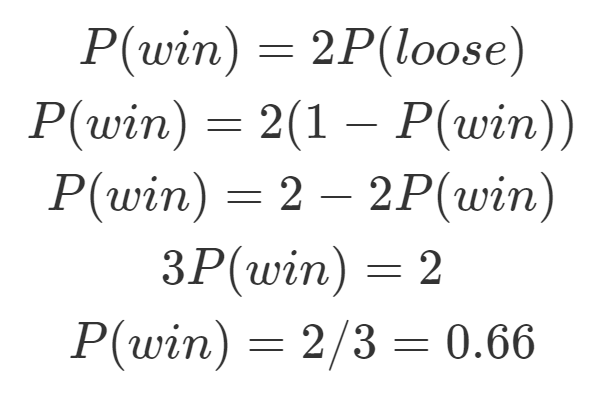



Probability Vs Odds What S The Difference Learn It And By Z Ai Towards Data Science
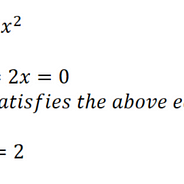



Are You Mixing Up Odds With Probability By Keith Mcnulty Towards Data Science




Definition And Calculation Of Odds Ratio Relative Risk Stomp On Step1



Odds Vs Probability Vs Chance Data Science Central



Are You Mixing Up Odds With Probability By Keith Mcnulty Towards Data Science




Probability Vs Odds What S The Difference Learn It And By Z Ai Towards Data Science




Converting Probability To Odds Example Youtube
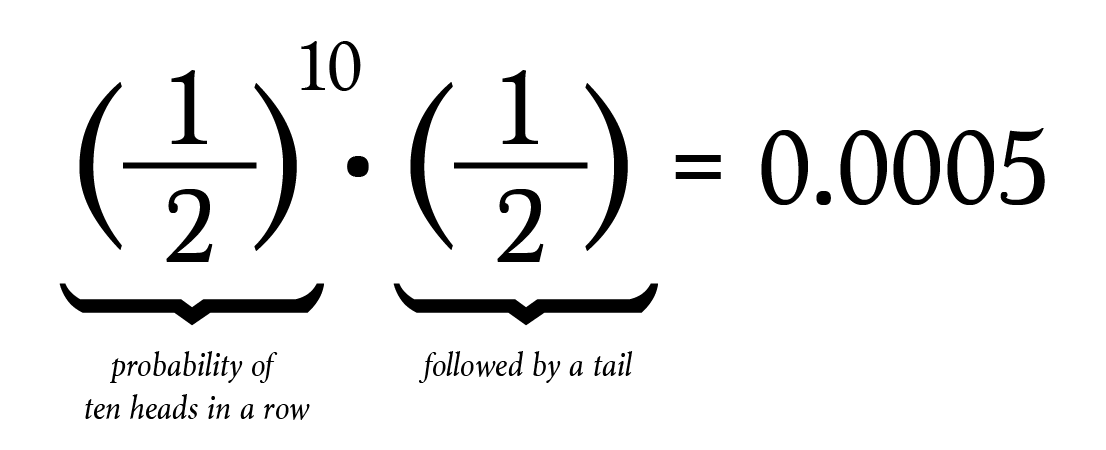



That Common Misconception About Probability By Brett Berry Math Hacks Medium




Log Odds Interpretation Of Logistic Regression Youtube




Estimates Of Odds Ratios Of Daily Probability Of Diarrhea In The Download Scientific Diagram



Q Tbn And9gcrvgxhtxe Ii0n8nnxjnbrkebdqbfod6virkd0m0a3zopawshe6 Usqp Cau



Odds Likelihood Ratios Guide To Diagnostic Tests



1




How To Calculate Odds 11 Steps With Pictures Wikihow




The Difference Between Relative Risk And Odds Ratios The Analysis Factor
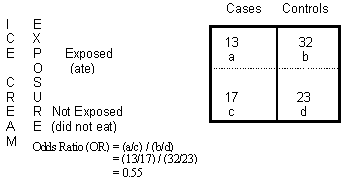



Odds Ratio Calculation And Interpretation Statistics How To




Webinar Recording Signup




Statquest Odds Ratios And Log Odds Ratios Clearly Explained Youtube
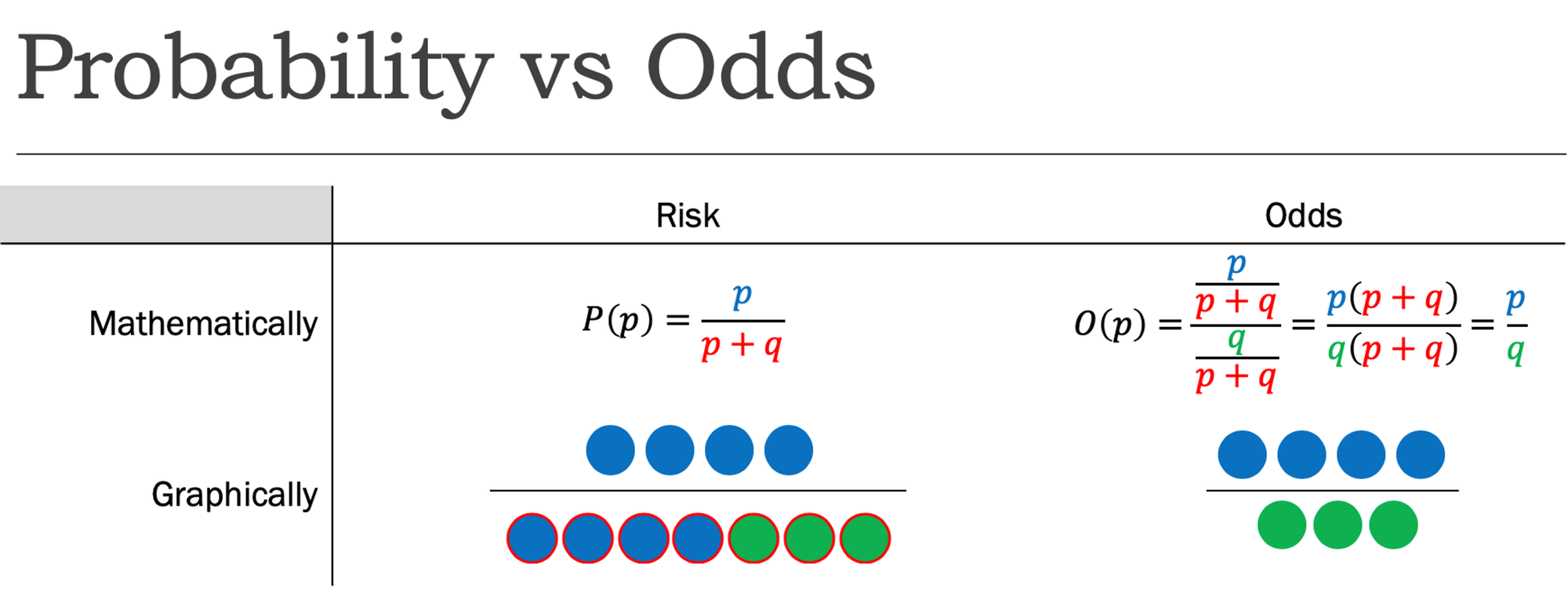



Cureus What S The Risk Differentiating Risk Ratios Odds Ratios And Hazard Ratios
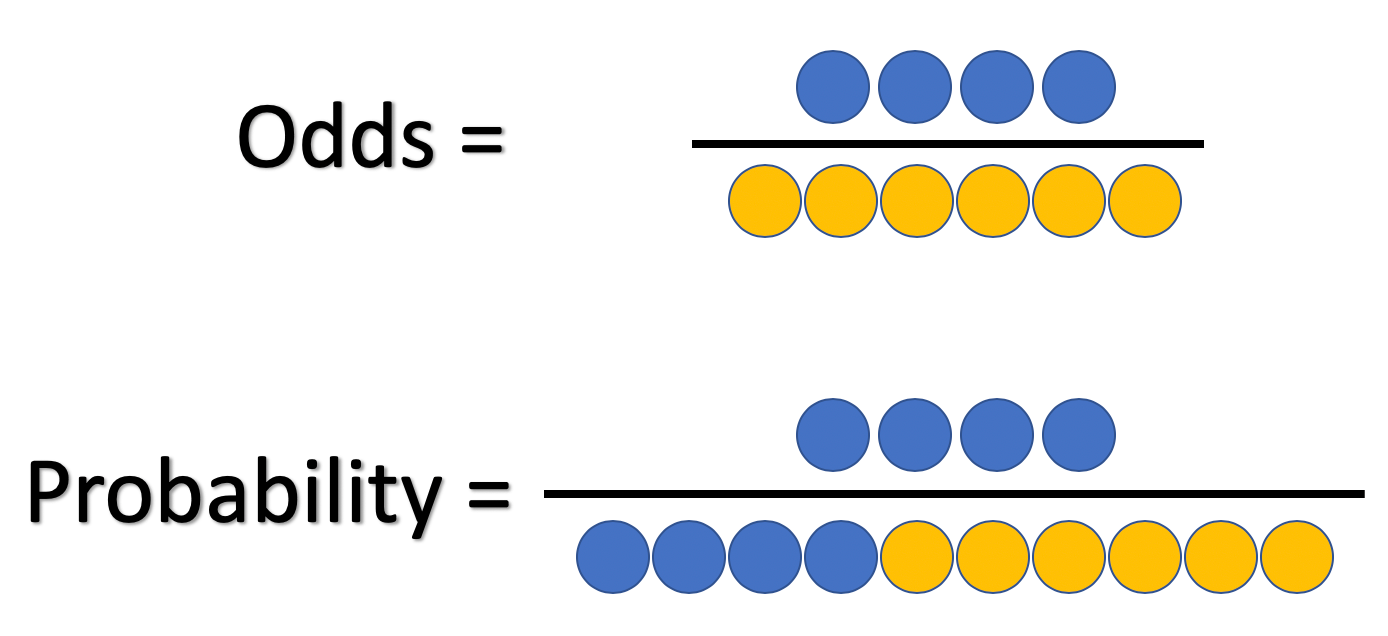



What And Why Of Log Odds What Are Log Odds And Why Are They By Piyush Agarwal Towards Data Science



Q Tbn And9gctxz8owky Sul84xtk4ggzacxwhkmhguhlxwyjj9avufagdrhwm Usqp Cau



1
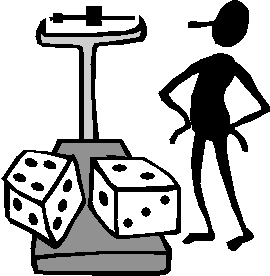



The Difference Between Probability And Odds



0 件のコメント:
コメントを投稿